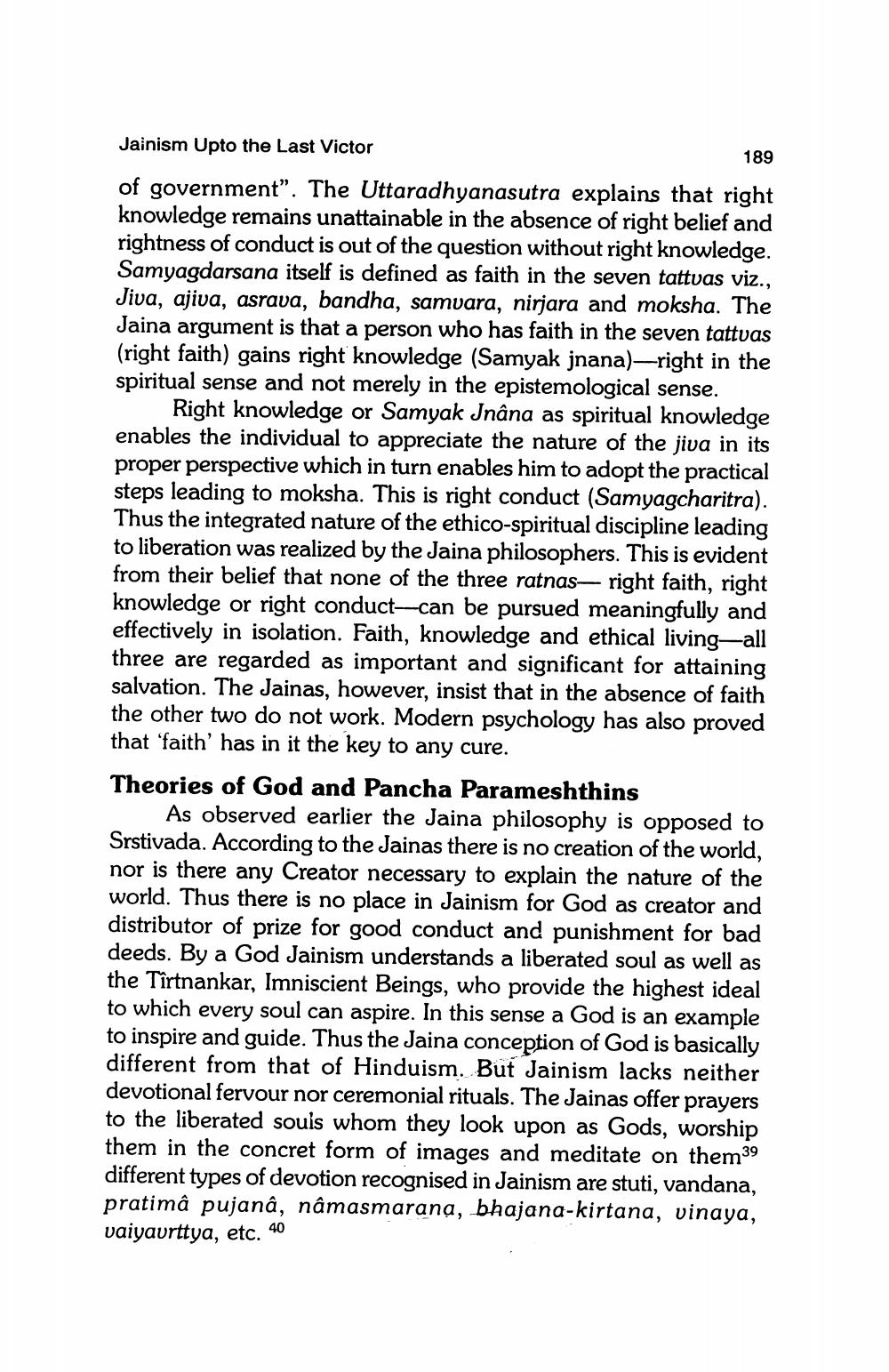________________
Jainism Upto the Last Victor
189
of government”. The Uttaradhyanasutra explains that right knowledge remains unattainable in the absence of right belief and rightness of conduct is out of the question without right knowledge. Samyagdarsana itself is defined as faith in the seven tattvas viz., Jiva, ajiva, asrava, bandha, samvara, nirjara and moksha. The Jaina argument is that a person who has faith in the seven tattvas (right faith) gains right knowledge (Samyak jnana)-right in the spiritual sense and not merely in the epistemological sense.
Right knowledge or Samyak Jnâna as spiritual knowledge enables the individual to appreciate the nature of the jiva in its proper perspective which in turn enables him to adopt the practical steps leading to moksha. This is right conduct (Samyagcharitra). Thus the integrated nature of the ethico-spiritual discipline leading to liberation was realized by the Jaina philosophers. This is evident from their belief that none of the three ratnas— right faith, right knowledge or right conduct-can be pursued meaningfully and effectively in isolation. Faith, knowledge and ethical living-all three are regarded as important and significant for attaining salvation. The Jainas, however, insist that in the absence of faith the other two do not work. Modern psychology has also proved that 'faith' has in it the key to any cure. Theories of God and Pancha Parameshthins
As observed earlier the Jaina philosophy is opposed to Srstivada. According to the Jainas there is no creation of the world, nor is there any Creator necessary to explain the nature of the world. Thus there is no place in Jainism for God as creator and distributor of prize for good conduct and punishment for bad deeds. By a God Jainism understands a liberated soul as well as the Tîrtnankar, Imniscient Beings, who provide the highest ideal to which every soul can aspire. In this sense a God is an example to inspire and guide. Thus the Jaina conception of God is basically different from that of Hinduism. But Jainism lacks neither devotional fervour nor ceremonial rituals. The Jainas offer prayers to the liberated souls whom they look upon as Gods, worship them in the concret form of images and meditate on them 39 different types of devotion recognised in Jainism are stuti, vandana, pratimâ pujanâ, nâmasmarana, bhajana-kirtana, vinaya, vaiyavrttya, etc. 40




